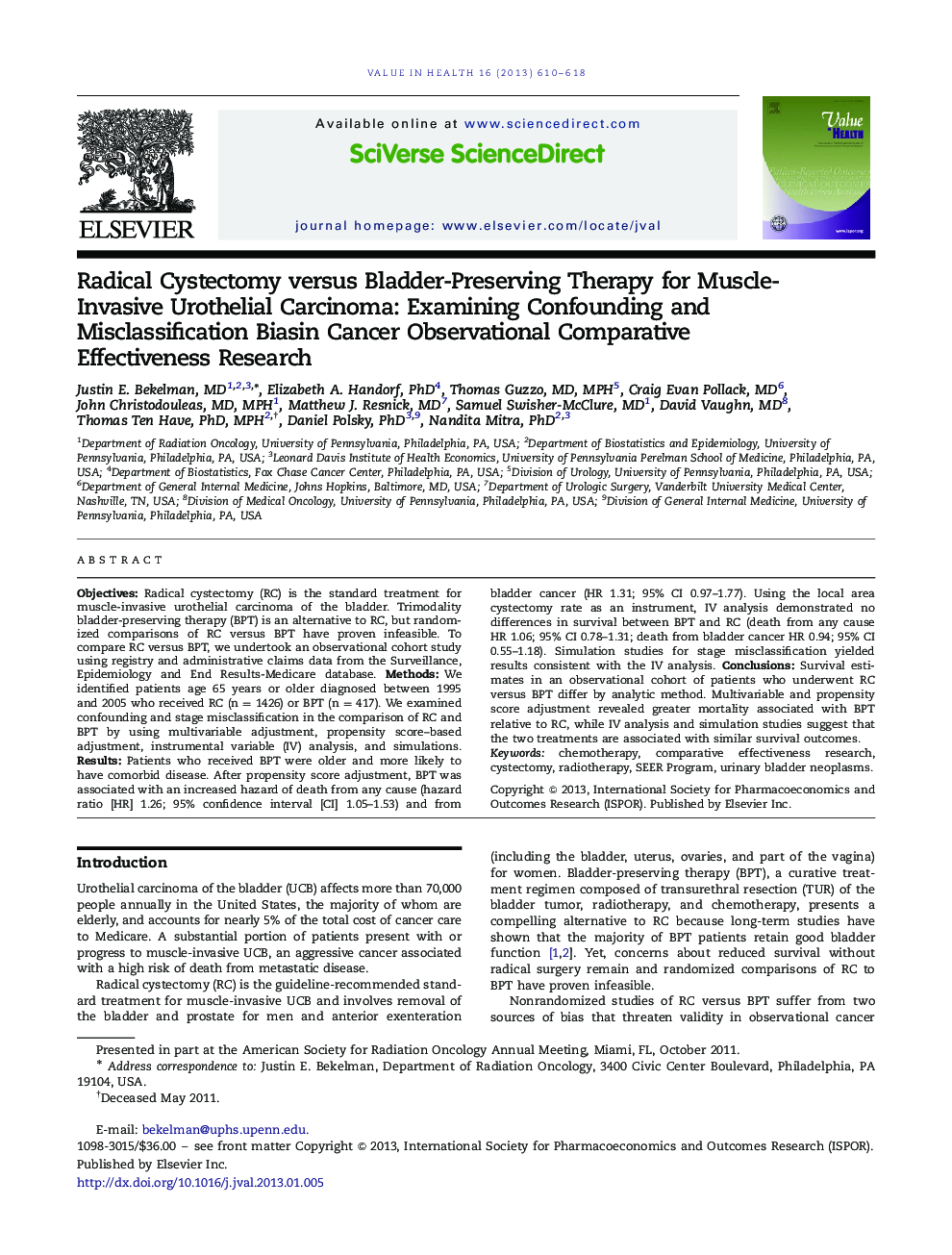| Article ID | Journal | Published Year | Pages | File Type |
|---|---|---|---|---|
| 989325 | Value in Health | 2013 | 9 Pages |
ObjectivesRadical cystectomy (RC) is the standard treatment for muscle-invasive urothelial carcinoma of the bladder. Trimodality bladder-preserving therapy (BPT) is an alternative to RC, but randomized comparisons of RC versus BPT have proven infeasible. To compare RC versus BPT, we undertook an observational cohort study using registry and administrative claims data from the Surveillance, Epidemiology and End Results-Medicare database.MethodsWe identified patients age 65 years or older diagnosed between 1995 and 2005 who received RC (n = 1426) or BPT (n = 417). We examined confounding and stage misclassification in the comparison of RC and BPT by using multivariable adjustment, propensity score–based adjustment, instrumental variable (IV) analysis, and simulations.ResultsPatients who received BPT were older and more likely to have comorbid disease. After propensity score adjustment, BPT was associated with an increased hazard of death from any cause (hazard ratio [HR] 1.26; 95% confidence interval [CI] 1.05–1.53) and from bladder cancer (HR 1.31; 95% CI 0.97–1.77). Using the local area cystectomy rate as an instrument, IV analysis demonstrated no differences in survival between BPT and RC (death from any cause HR 1.06; 95% CI 0.78–1.31; death from bladder cancer HR 0.94; 95% CI 0.55–1.18). Simulation studies for stage misclassification yielded results consistent with the IV analysis.ConclusionsSurvival estimates in an observational cohort of patients who underwent RC versus BPT differ by analytic method. Multivariable and propensity score adjustment revealed greater mortality associated with BPT relative to RC, while IV analysis and simulation studies suggest that the two treatments are associated with similar survival outcomes.
